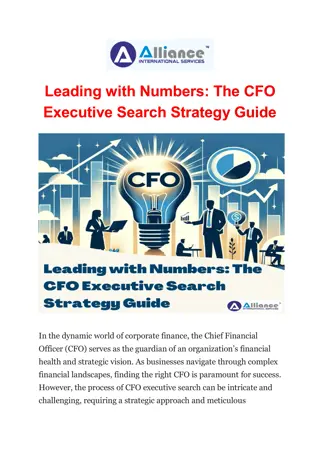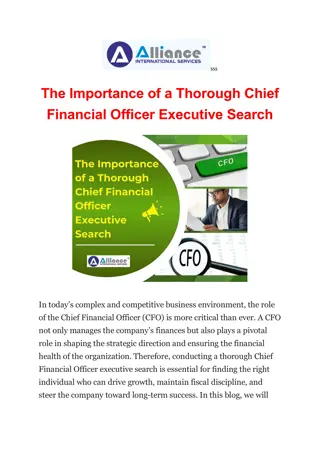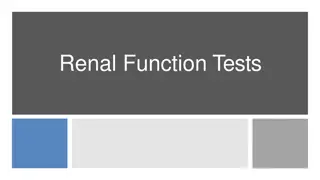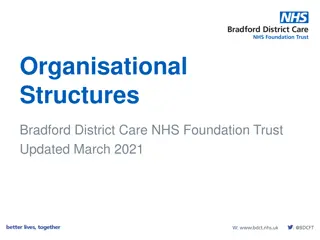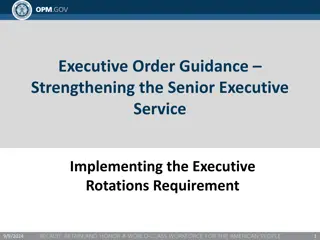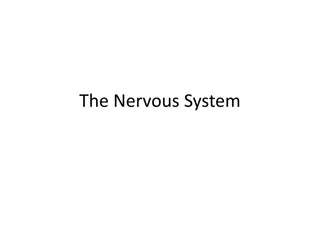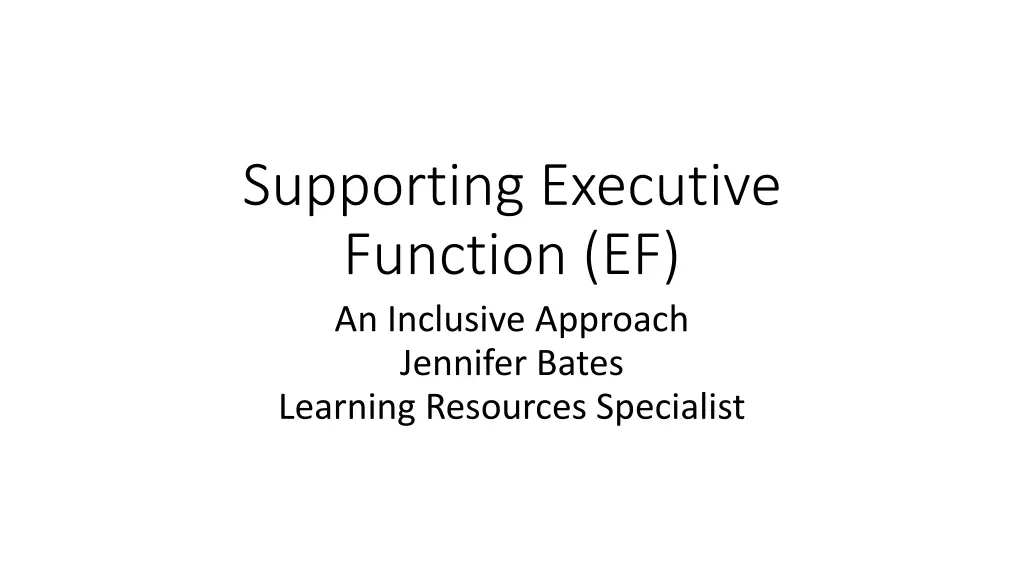
Understanding Executive Functioning and its Impact on Daily Life
Explore the concept of executive function, a cognitive management system of the human brain, and learn how it influences our ability to plan, execute tasks, and regulate behaviors. ADHD/ADD diagnosis indicates deficits in EF, but various factors can temporarily compromise EF in individuals without these conditions. Discover how mental illness, physical illness, trauma, cultural factors, and systemic oppression can affect executive functioning, making every individual vulnerable to impairment.
Download Presentation

Please find below an Image/Link to download the presentation.
The content on the website is provided AS IS for your information and personal use only. It may not be sold, licensed, or shared on other websites without obtaining consent from the author. If you encounter any issues during the download, it is possible that the publisher has removed the file from their server.
You are allowed to download the files provided on this website for personal or commercial use, subject to the condition that they are used lawfully. All files are the property of their respective owners.
The content on the website is provided AS IS for your information and personal use only. It may not be sold, licensed, or shared on other websites without obtaining consent from the author.
E N D
Presentation Transcript
Supporting Executive Function (EF) An Inclusive Approach Jennifer Bates Learning Resources Specialist
What is executive function? According to Dr. Thomas E. Brown, executive function is an umbrella term covering the cognitive management system of the human brain. His model identifies six clusters of functions, in the areas of activation, focus, effort, emotion, memory and action (http://www.brownadhdclinic.com/add-adhd- model/)
For the purposes of our discussion, we are talking about the collection of mental processes that allow us to figure out what we need to do, make a plan to do it, and execute the plan. It involves self-regulation in the service of a goal.
You may have seen or heard that ADHD and ADD are not real issues. That myth has been debunked. A diagnosis of ADHD/ADD indicates clinically significant deficits in EF. It has been proven that these conditions are hard-wired into the brain: they are life long chronic conditions.
There is a 2ndgroup of people who do not have ADHD/ADD but whose executive function is temporarily and situationally compromised due to a number of different factors, including but not limited to the following:
Mental illness Physical illness or injury (especially concussion) Trauma Bereavement or other significant loss Over-functioning Operating in a non-primary language Operating in a new culture Experiencing stereotype threat or other forms of systemic oppression
In other words, every person is vulnerable to impaired executive functioning
This does not mean that the conditions and circumstances which affect EF are either similar or equivalent in their impact
EF support will generally not be sufficient to treat or resolve the negative impact of these conditions and circumstances, either at the individual or systemic level
And yet, its an inclusive approach: No matter what kind of challenge a student is facing, minimizing the burden on EF frees up energy and attention the student can direct to the learning tasks of your class, including class discussion, assignments and other problem-solving
It also frees up energy and attention the student can direct towards accessing other needed academic resources, including librarians, professional and peer tutors, office hours, etc.
The syllabus is your most powerful tool for minimizing the burden on your students EF (and your own!)
What are the elements of an EF- friendly syllabus?
It is available to students at least a week before class begins
Clarity All due dates and major assignments are easy to identify, preferably in a separate section at the beginning as well as within the weekly calendar
Consistency If possible, it does not change over the course of the semester in any substantial way, including pushing back due dates at the last minute
In an EF-friendly syllabus, instruction is explicit rather than implicit
For example: What does good participation look like? Is it measured by the sheer volume of contribution or are there other factors?
If your class involves learned skills (like a lab) what level of skill are students assumed to have achieved prior to your class? If students are worried about their skill level, how and where can they get help?
How do you want students to approach readings? Lightly skim to orient themselves, or read texts deeply? Do readings prepare students for lectures or do lectures prepare students for readings?
How do you structure your availability to students? How do you want them to address you? What is your typical response time on emails? What is ok to ask about in email and what needs to be discussed in person? Is it ok to grab you after class or do you prefer planned meetings?
In other words Operate from the assumption that your class is a new environment where everyone needs guidance about how to succeed, no matter what their previous learning environments have been
An EF-friendly syllabus offers a choice of assignment format (if possible)
In designing assignments, it is important to ask: What is the intrinsic cognitive load? i.e., what is the thing with which the student must struggle to meet the learning goal?
What is the extraneous cognitive load? i.e., what must the student do to complete the assignment in this particular format that is not essential to the learning goal?
For example, depending on the learning goals of the course, writing one s critical thinking in the form of a paper may represent either intrinsic cognitive load or extraneous cognitive load. If it s extraneous, can you offer an alternative format, e.g. an oral presentation? A poster? A video?
An EF-friendly syllabus builds in flexibility with due dates (if possible)
If you can build in some flexibility with due dates, you will reduce the number of requests for extensions you need to navigate, as well as lowering students stress
Successful strategies Middlebury faculty have employed include A weekly assignment where you drop the lowest or two lowest grades For classes with papers/projects/homework: give a budget of automatic extension days for the semester that students can use as they need For classes with papers/projects: in a class that requires 3 papers/projects, offer 5 possible assignments/due dates Offer alternative forms of class participation, such as online discussions Test, exams and quizzes which can be taken online at a time and place of the student s choosing
Flexibility needs to be specific Students do not benefit when professors do not have clear policies around late work or attendance or when they do not enforce them. Flexibility does not mean anything goes
Common strategies/occurrences which can unintentionally create additional burden on EF in the classroom
Ice breakers that require people to share intimate details of their lives. Not all stories are equally safe to share.
Classroom technology policies that out students with accommodations (e.g., no electronic devices in the classroom unless you have accommodations, in which case you can see me )
For those of you who employ mindfulness and meditation as part of your pedagogy, please be aware that for some people (those with PTSD, anxiety disorders, or those on the spectrum, to name a few possibilities) meditation practices that ask them to direct attention inward can actually be destabilizing and cause distress
If you want to begin class with an exercise that allows students to get grounded, it s recommended to do something that asks people to externalize their attention instead. For example, ask people to pick out something to look at, then something to listen to, then something to touch. For each of these sensory experiences, ask them to come up with three details. For example, they might notice that the carpet is grey, rough, and has mud on it.
Even if something is optional, if you are not careful about how you structure your request, many students will elect to do something that is difficult or painful for them rather than be outed as different
Talking about any identity or experience in a way that suggests you do not expect it to be present in the room -- no one like that could be at Middlebury
Elements of A Syllabus That Supports EF Clarity Consistency Explicit instruction Specific flexibility (where possible) in both formats and due dates for assignments An expectation of difference



